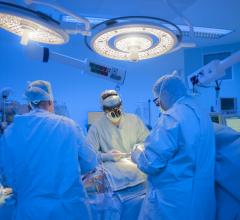March 3, 2009 - A recently published article in the Journal of Heart and Lung Transplantation (JHLT) from the German Heart Institute Berlin found right ventricular (RV) dysfunction develops in 20-50 percent of patients after left ventricular assist device (LVAD) implantation, leading to prolonged ICU stays and elevated mortality.
A second article, from the Hospital of the University of Pennsylvania (HUP), found that of 266 LVAD recipients, 99 required a RV assist device (37 percent).
“Right ventricular (RV) failure after left ventricular assist device (LVAD) placement is a serious complication and is difficult to predict,” the HUP article explained. “In the era of destination therapy and the total artificial heart, predicting post-LVAD RV failure requiring mechanical support is extremely important.”
“Right ventricular failure in LVAD patients is tragic,” said Dr. Jack Copeland, chief of cardiothoracic surgery at University Medical Center. “If it can be anticipated, the solution is biventricular support from the start. If it becomes a crisis, in appropriate patients, the CardioWest temporary total artificial heart may be life-saving. By replacing both sides of the dying heart, the CardioWest eliminates complications caused by failing ventricles, diseased valves, ventricle defects and electrical problems requiring a pacemaker and/or defibrillator.”
Both articles were published in the December 2008 issue of JHLT and presented at the 28th annual meeting of the International Society for Heart and Lung Transplantation (ISHLT) in April 2008.?
Originally designed as a permanent replacement heart, the CardioWest artificial heart is currently approved as a bridge to human heart transplant for patients dying from end stage biventricular failure.
The CardioWest artificial heart is the only FDA, Health Canada and CE mark approved total artificial heart in the world. There have been more than 780 implants of the CardioWest artificial heart, accounting for more than 150 patient years of life on the device.
For more information: www.SynCardia.com


 January 15, 2026
January 15, 2026 









